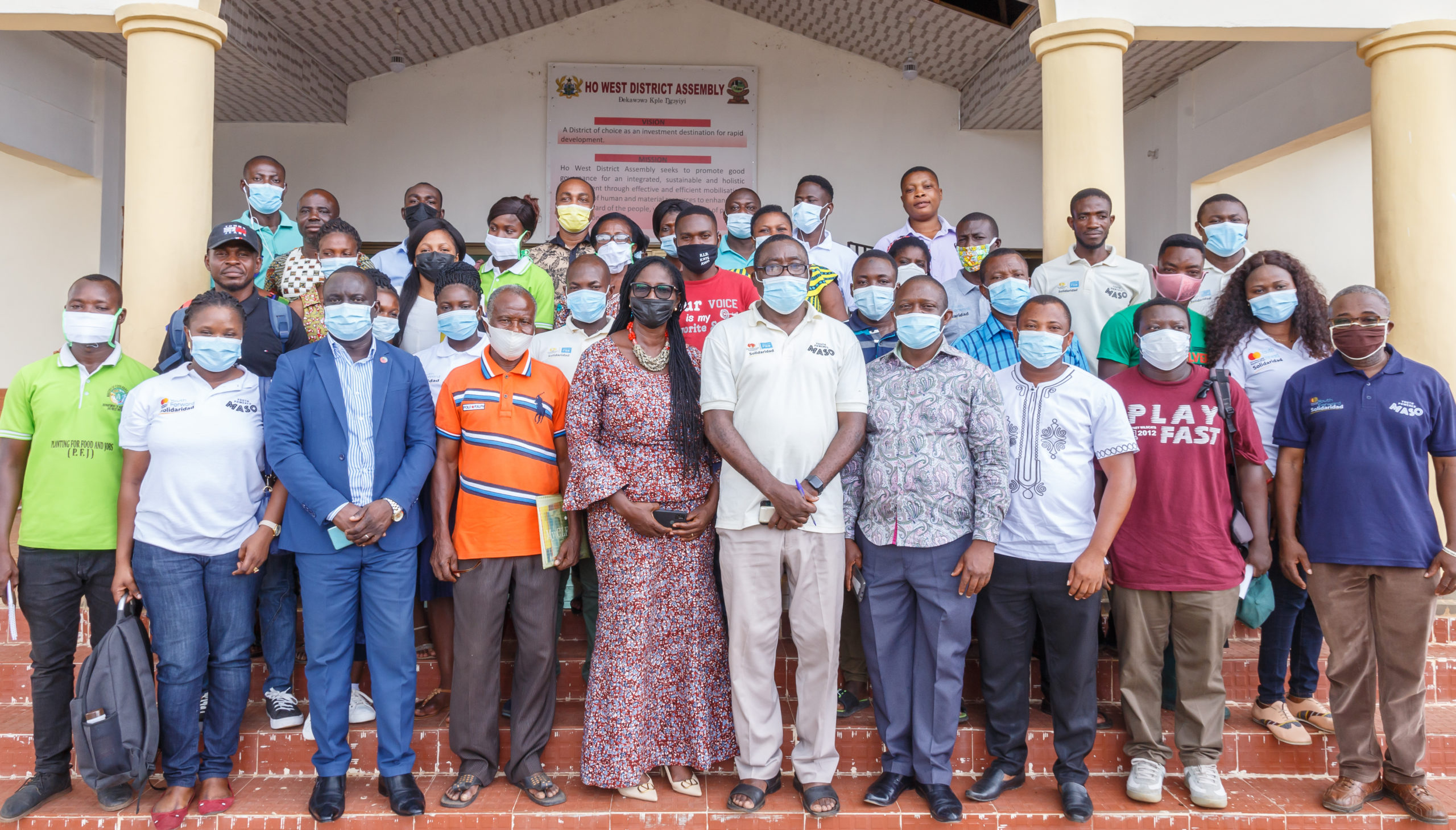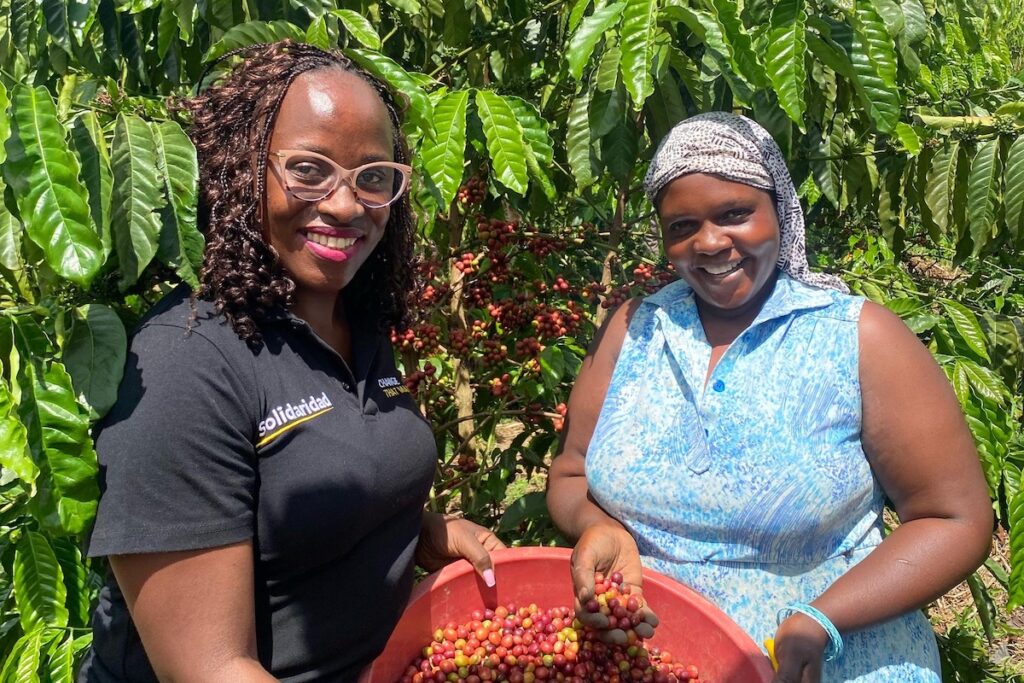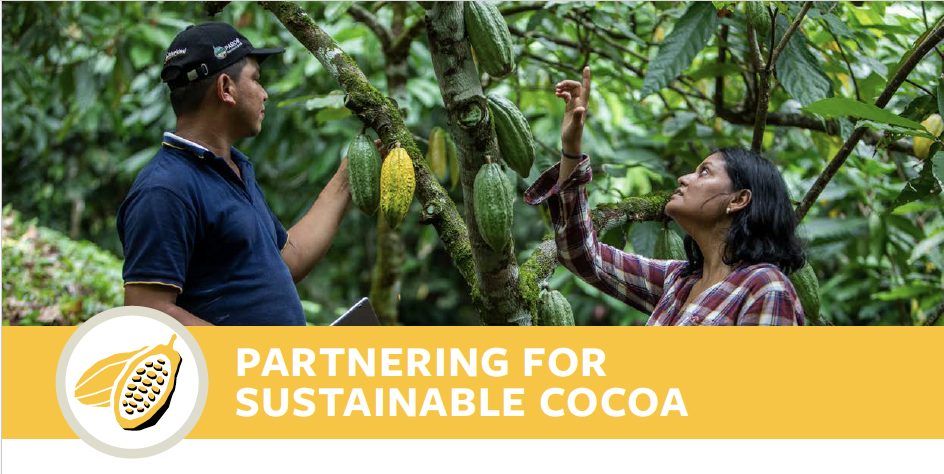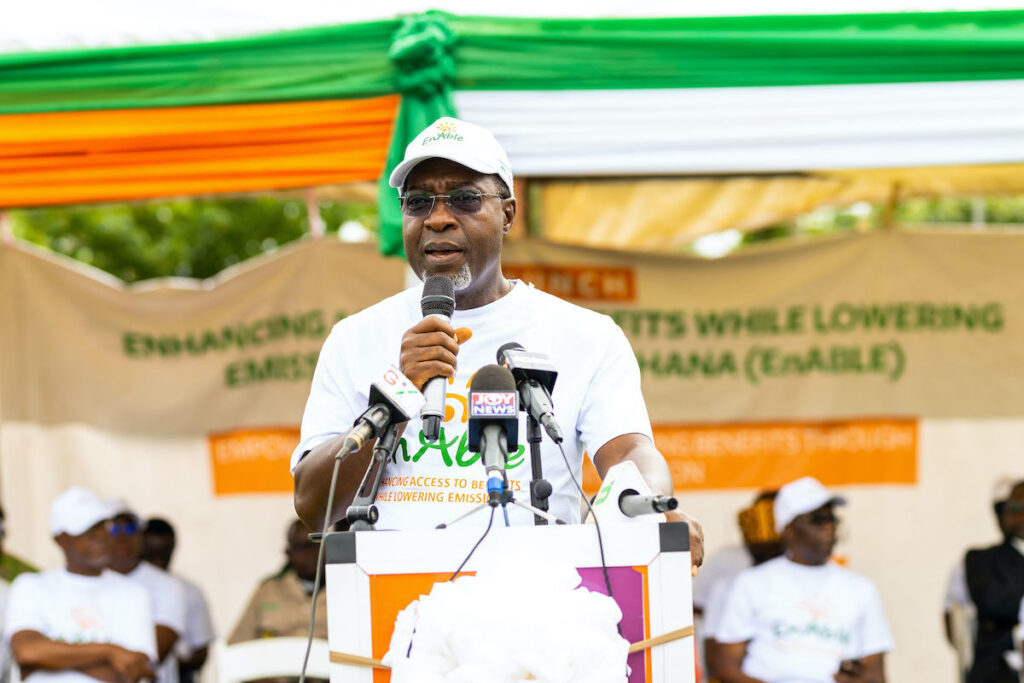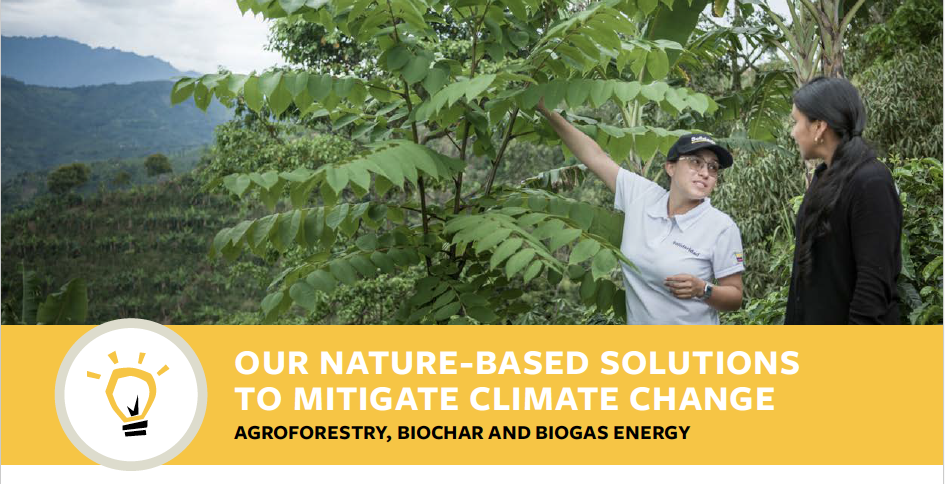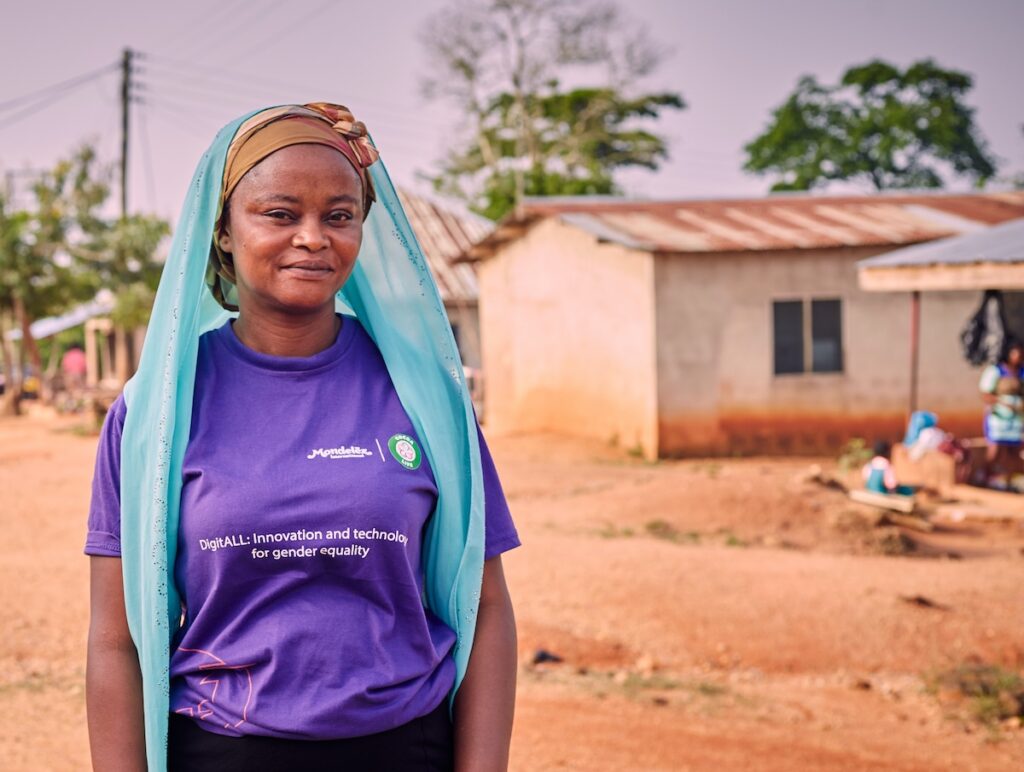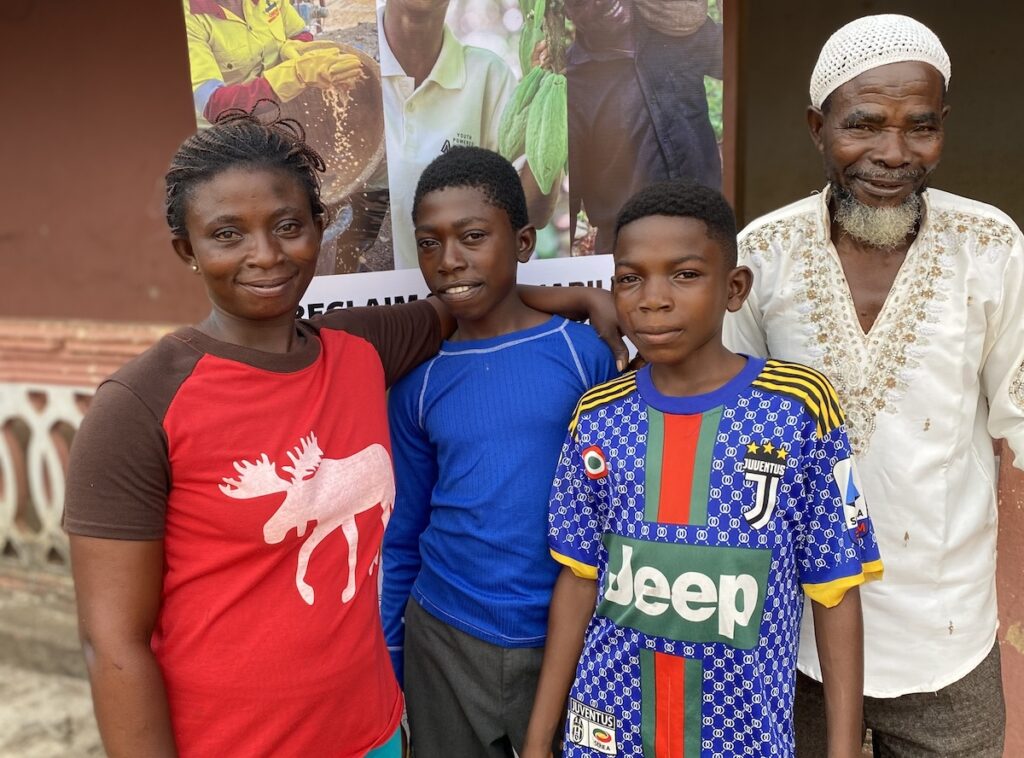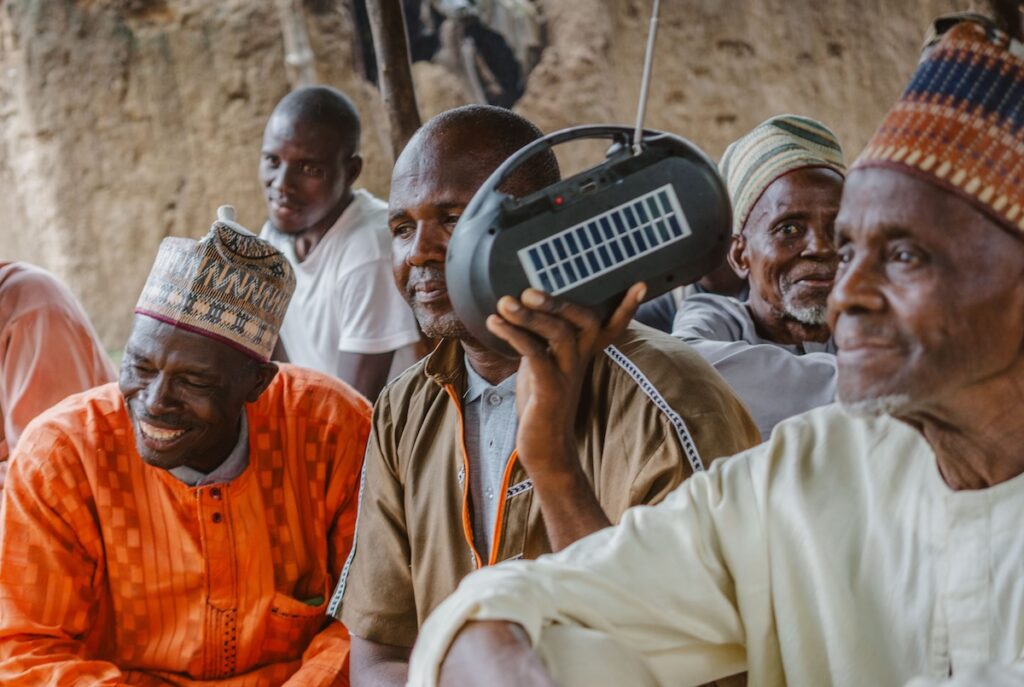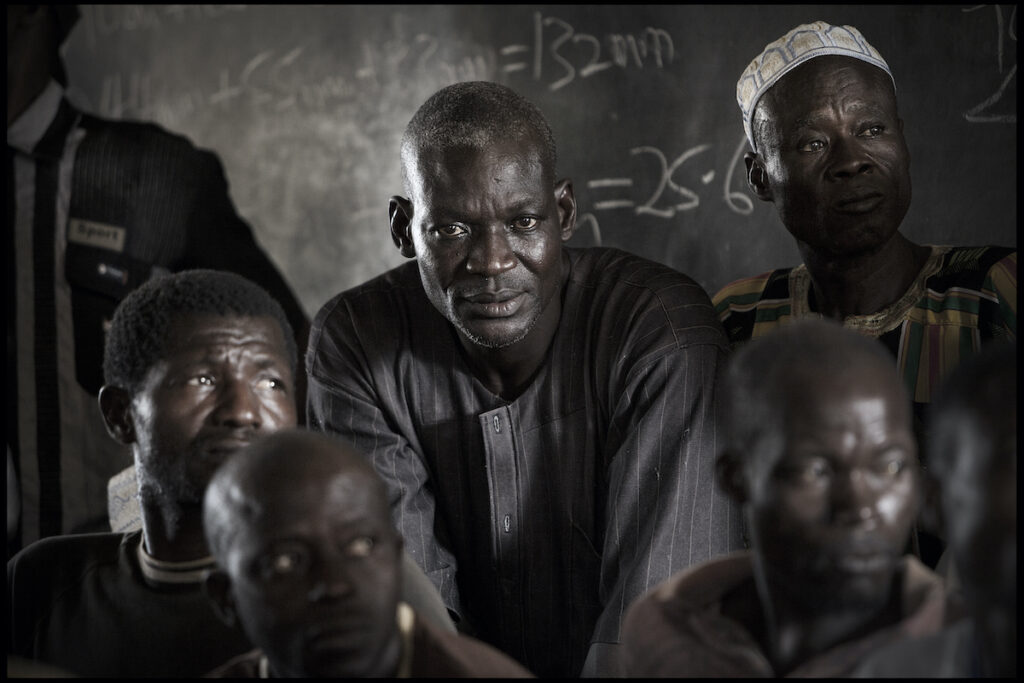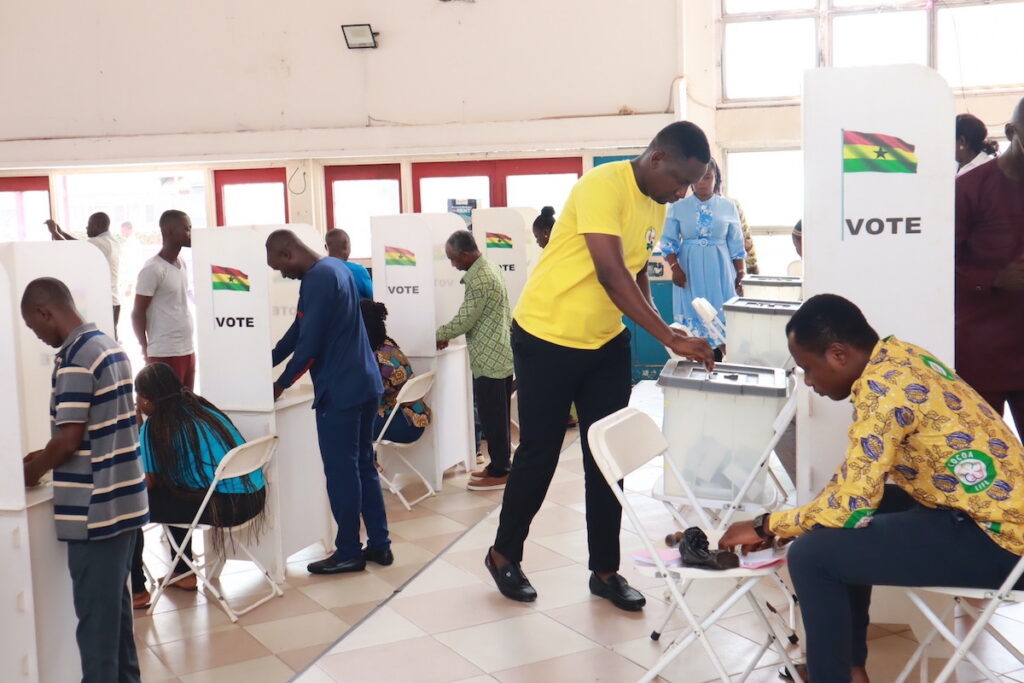The five-year programme, implemented between January 2016 and December 2020, was focused on providing viable career options for the youth in cocoa-growing communities in Ghana. It was part of the Youth Forward Initiative funded by the Mastercard Foundation and implemented by six consortium members, made up of Solidaridad, Aflatoun International, Ashesi University, Fidelity Bank Ghana Limited, Opportunity International, and the Ghana Cocoa Board.
The programme has created a critical mass of young entrepreneurial cocoa farmers, as well as youth-led professional service providers within the Ghanaian cocoa landscape.
Key results and achievements
Over 13,000 young men (57 percent) and women (43 percent) in 341 cocoa-growing communities enrolled in the programme, with over 9,500 of them equipped with relevant tools and skills to take up cocoa farming and related businesses. More than 4,100 youth have established cocoa farms totalling 1,458 hectares while others were involved in setting up 449 service centres. These professional service providers and cocoa farmers are contributing to the development of the cocoa sector through climate-smart agronomic practices that improve productivity and avoid deforestation.
The close-out activities
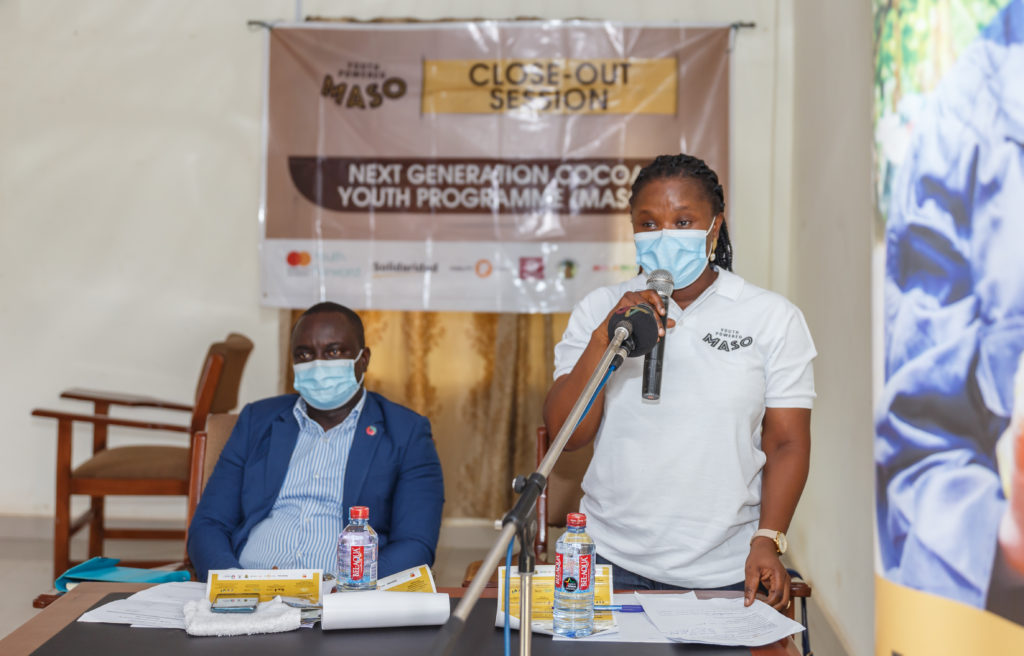
Since 3 May 2021, Solidaridad has been engaging with stakeholders in programme communities in the 11 beneficiary districts to take stock, reflect on the results achieved and lessons learned as part of activities to formally close out the programme. The engagements took the form of community radio campaigns and direct consultations with traditional and community leaders in beneficiary communities.
The Regional Director for Solidaridad West Africa, Isaac Kwadwo Gyamfi, in remarks delivered on his behalf said the MASO programme demonstrated the business case for cocoa farming and related businesses and, thus motivated many youth to venture into the trade. He, however, called on stakeholders, particularly landowners and financial service providers to prioritize access to land and finance for youth who have interest and skills for cocoa production but struggle with these resources.
“As an organization that implements many other youth-focused interventions in the cocoa and oil palm value chains across our operations in Côte d’ivoire, Ghana, Liberia, Nigeria and Sierra Leone, Solidaridad has been applying lessons from the MASO programme to enhance the lives of other young people in the subregion,” said Isaac Gyamfi.
He expressed appreciation to the partners and stakeholders for the support and encouraged the beneficiaries to continue to apply the knowledge and skills to improve their livelihoods.
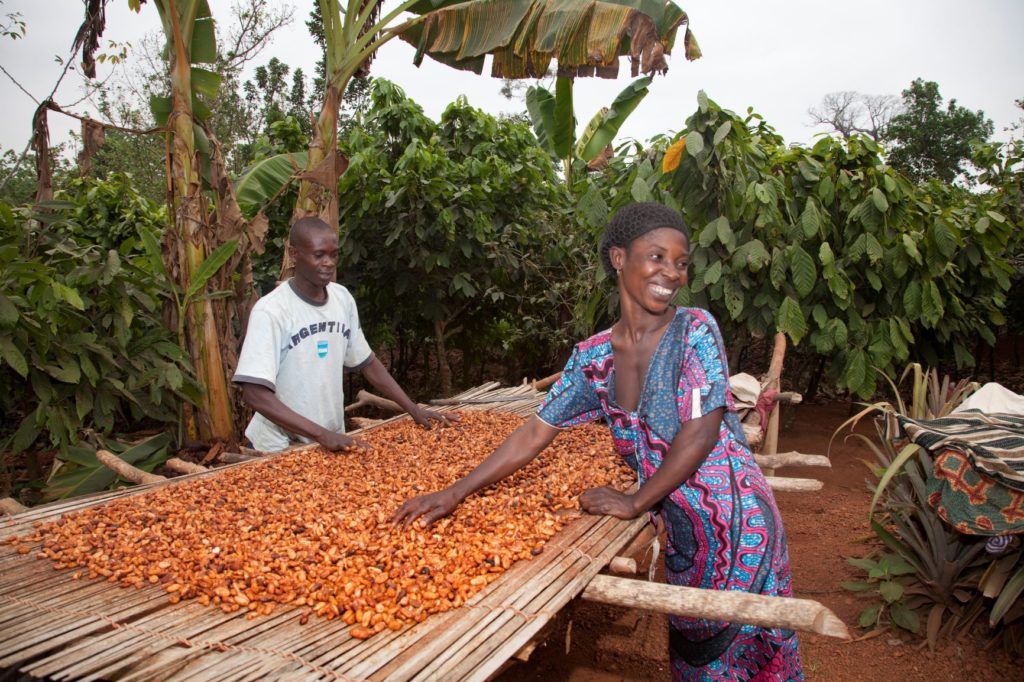
Solidaridad signs global civil society statement on child labour
The statement calls on chocolate and cocoa companies and governments to start living up to decades-old promises.
Ernest Victor Apau, a local government official who spoke at the event, commended Solidaridad for supporting the drive to curb rural-urban migration by sustaining the interest of the youth in cocoa farming through the creation of many job opportunities. He also pledged the local government’s continuous support for the MASO programme beneficiaries so they can contribute their skills and knowledge to improve their communities.
The impact
Freda Mensah, a young cocoa farmer who shared the impact the programme has had in her life said, with the adoption of good farming practices such as pruning and effective pest and disease control methods, she has been able to increase the yield of her mother’s five-acre farm from five to seven bags per harvest.
She explains that the programme has also assisted her to start an agrochemical business with other MASO youth where they provide fertilizers and pesticides to farmers in their community.
As the breadwinner of her family, including her three children, insight from the MASO training on savings and financial management has helped her to properly manage her finances, which has led to the re-enrollment of two of her children in school.
“I never considered the concept of saving, but after MASO opened a mobile savings account for me, I have been saving 10 Ghana cedis (2 dollars) every month,” she said.
With this, Freda envisions expanding her cocoa farm beyond the five acres currently under her management. She is confident of leaving behind a better legacy for her children.
For Mohammed Issahaku, who now leads a team of seven youth to provide farm labour services such as pruning, spraying and general farm maintenance to cocoa farmers in his community, the programme has helped him tremendously.
I now earn between 600 Ghana cedis (111 USD) and 900 cedis (167 USD) a month from the labour services I provide to farmers. Also, the practical knowledge provided on financial literacy has helped my team to save and acquire an additional pruner to the one provided by MASO.
Mohammed Issahaku, Farmer leader and service provider
Mohammed said he now finds it easy supporting his son, mother and sister from the improved earnings. He is determined to expand his new business guided by the knowledge he acquired from the programme.

